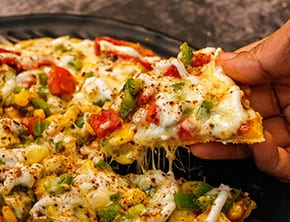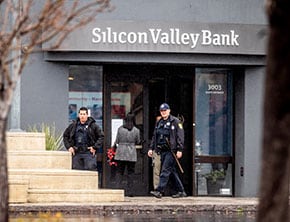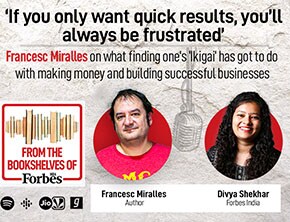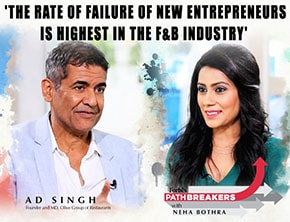![]() 1) Beating the odds
1) Beating the odds
Saroja Yeramilli was confident when she reached out to raise funds for her first venture that investors will back her proposal because of her stellar track record in the corporate world. But she was offered a rude awakening instead. This was the year 2015 when Yeramili was rolling out Melorra, an online brand to disrupt the traditional way of selling, buying, making and perception of jewellery. In 2023, the brand delivers across 26,000 PIN codes has 23 experience centres in 12 cities has added a long list of backers had operating revenue of ₹364.4 crore in FY22. The tenacious founder and CEO of Melorra embarked on a journey filled with odds, lows, and rejections before reaching the current milestone. This is the story of a founder who refused to give up. Read here
![]() 2) Supermoms for SuperBottoms
2) Supermoms for SuperBottoms
Pallavi Utagi’s maiden venture was born out of her efforts to find the best for her baby. Not unlike every new mom that wants to give the world to her newborn. Her entrepreneurship journey began in 2014, and by 2016 SuperBottoms started gaining steam. Next year the rookie founder faced her first "copycat" threat from one of her ex-employees. Eventually, the imposter was defeated. Another battle was fought in 2020 against FMCG giant P&G when Pampers rolled out cloth diapers in India. Both crises showed Utagi that she has the backing of supermoms on the team and a loyal army of mothers as her consumers. The filmy yet powerful feeling of Mere pass maa hai became a reality for her. Read here
![]() 3) Another one bites the crust
3) Another one bites the crust
Because of the rising prices of grocery, dairy products, and vegetables, Indian households have reduced dining out and ordering in. Zomato stopped services in 225 smaller cities in January this year. Quick Service Restaurants (QSR) are feeling the brunt of reduced ticket size and the slowdown in discretionary consumption. Yet, QSR businesses in India are aggressively expanding their stores into Tier II and III cities. These businesses are confident that the trend is transient. Analysts are making bearish commentaries, and there is widespread nervousness around the declining consumption pattern in India. So who will survive, and who will bite the crust? Read here
Discover
![]() 1) Giving is selfish
1) Giving is selfish
If you are a fan of the sitcom Friends, then you are acutely aware that giving is not a selfless act. In the episode The One Where Phoebe Hates PBS, Phoebe"s attempts to show Joey that giving is not selfish end up making her feel good. And feeling good is personal. To experience that intimate feeling of warm glow and satisfaction, people give. It makes the world better, it lets you express gratitude, it also can make you famous, could earn you brownie points among your peers. There are many reasons. Luis Miranda, chairman and cofounder of the Indian School of Public Policy, and Nimisha Pathak, a project associate, underline this fact with several interesting nuggets in this story. Read here
![]() 2) SVB collapse and Indian startups
2) SVB collapse and Indian startups
Silicon Valley Bank was one of the favourite banks of the global tech industry. It manages the funds of several marquee venture capitalists and HNI founders around the world and also lends to early-stage technology and biotech startups. Because of the funding winter, thanks to the rising global inflation and tighter monetary policies, tech firms had to rely on their reserves and deposits at SVB. The bank could not shore up the capital base to meet this sudden demand for funds and on March 10, 2023, declared bankruptcy. In a globalised world, everyone gets hurt when something goes wrong. Here"s a look at the impact of SVB collapse on the Indian startup ecosystem. Read here
![]() 3) Why entrepreneurs must find Ikigai
3) Why entrepreneurs must find Ikigai
The Japanese have a long tradition of finding the secret to a sense of purpose, happiness and balance in everyday life. And they have a word—Ikigai—to represent just that. In this episode of From the Bookshelves of Forbes India, Divya Shekhar meets up with Francesc Miralles, who has authored the globally bestselling Ikigai series of books along with Hector Garcia. They speak about whether finding your Ikigai can make you a better entrepreneur, whether business and doing good can go hand-in-hand, and making money. And in the age of startup successes, where young entrepreneurs chase dizzying valuations and want to hit it big in a short period, does the process of finding one’s Ikigai, and the values of purpose, patience and perseverance, have much resonance? Listen here
![]() 4) AD Singh on Forbes India Pathbreakers
4) AD Singh on Forbes India Pathbreakers
In a free-wheeling conversation for Pathbreakers, veteran restaurateur AD Singh, one of the pioneers of standalone restaurants in India, talks about how he survived the three-year jinx in the F&B industry, and how the business has evolved over 33 years. Singh cautions that the rate of failure of new entrepreneurs is highest in the F&B industry and shares strategies for budding entrepreneurs on how to set up and run successful restaurants. After the Covid-induced setback, Singh says, "Customers are back with a bang" and adds that "the last 12-15 months have been our best ever." Singh shares Olive Group"s expansion plans in the coming months: A new brand in Bengaluru, entering the overseas market by next year, and more. Watch here

 1) Beating the odds
1) Beating the odds 2) Supermoms for SuperBottoms
2) Supermoms for SuperBottoms 3) Another one bites the crust
3) Another one bites the crust 1) Giving is selfish
1) Giving is selfish 2) SVB collapse and Indian startups
2) SVB collapse and Indian startups 3) Why entrepreneurs must find Ikigai
3) Why entrepreneurs must find Ikigai 4) AD Singh on Forbes India Pathbreakers
4) AD Singh on Forbes India Pathbreakers